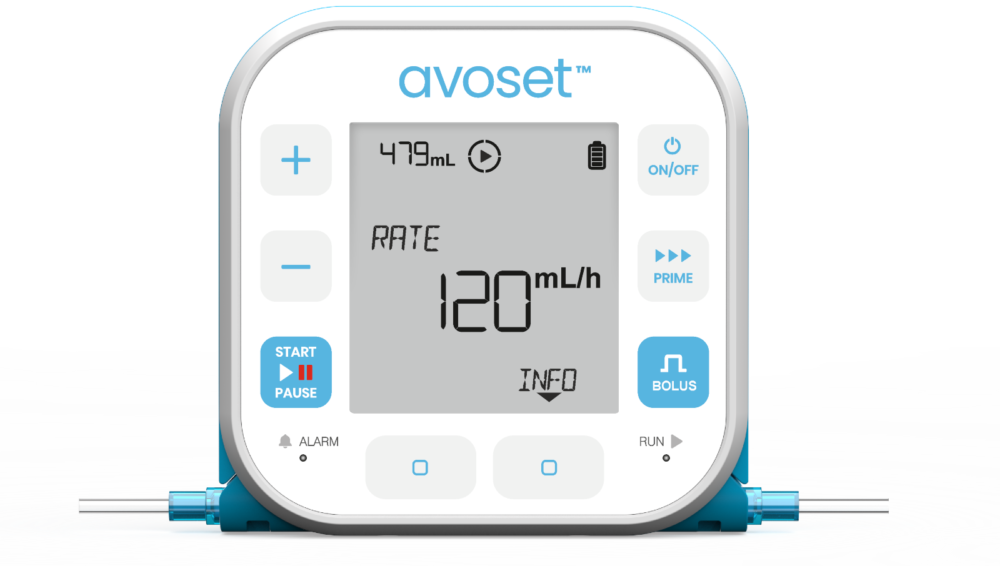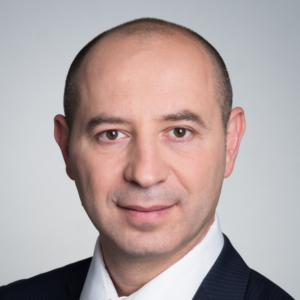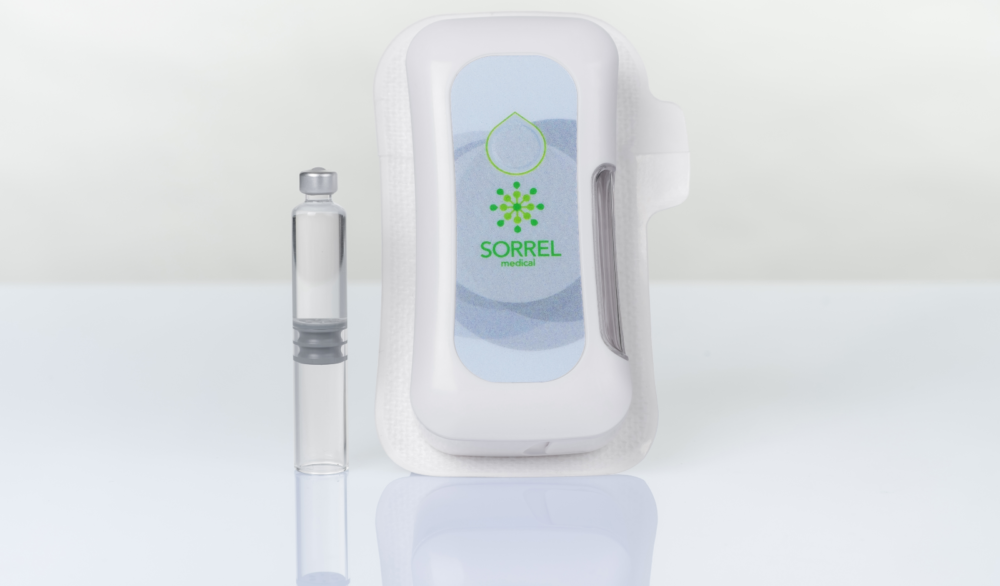Devices that deliver injectable drugs right at home
Devices that deliver injectable drugs right at home.
“I am so excited to interrupt my busy day for a medical appointment! Getting stuck in traffic, hunting for parking and inhaling strangers’ germs in waiting rooms is so worth it, just to spend a few minutes with my healthcare provider!”
Said nobody, ever.
Technologies that allow for medical evaluation, monitoring and treatment without leaving home were already in development before the pandemic hit.
Covid-19 accelerated this trend as medical appointments morphed from an annoying time sink into a scary health risk.
“The ‘hospital at home’ trend doesn’t mean we’ll shut hospitals,” says Dr. Yossi Bahagon, physician and managing partner of OurCrowd digital health-focused fund Qure Ventures.
“The need for infusion is increasing as the development of medication is progressing. The question is, where is that care going to be administered?”
“It means differentiating between medical interactions that should be taken care of in a face-to-face way and medical interactions that could be taken care of, without degradation of quality of care, in a virtual way via telemedicine,” he explains.
“If you utilize the different interaction models smartly, you’ll have more time and ability for face-to-face interactions in cases that truly cannot be treated remotely.”
Many Israeli companies support this trend with telehealth exam devices (such as TytoCare, Nonagon and OmnySense), remote monitoring (such as Biobeat, CardiacSense and HeraMED), virtual hospitals and smartphone-based healthcare.
Devices that deliver medications can extend “hospital at home” services to many more patients. This is another Israeli stronghold: Israel Advanced Technology Industries lists 30 companies in the drug-delivery sector.
Patches, pills, shots, infusions
Anybody can take medications at home in a transdermal patch or oral pill form.
But most of the biological (as opposed to chemical) drugs becoming more commonplace these days must be administered parenterally, through pre-filled syringes, wearable injectors, subcutaneous injections or intravenous (IV) infusions.

Shaul Eitan, president of Eitan Medical. Photo courtesy of Eitan Medical
“IV is by far the largest type of drug delivery that’s being used in the developing pipeline of pharmaceutical companies,” says Shaul Eitan, president of Eitan Medical, a company that is reimagining drug delivery with a patient-centric mindset.
Andrei Yosef, Eitan Medical’s general manager for pharmaceutical solutions, tells ISRAEL21c that the average hospital patient receives 1.2 infusions. Sometimes patients are hooked up to three or more infusion pumps.
“The need for infusion is increasing as the development of medication is progressing,” he says.
“The question is, where is that care going to be administered?”
Devices that deliver infusions at home, or close to home, reduce stress on patients, reduce costs, and reduce the workload of chronically short-staffed hospitals.
A personal story
Founded in 2009, Eitan Medical first developed a line of Sapphire ambulatory infusion pumps for hospital and home settings. Today, more than 100,000 of these software-based devices are in use by 3,500 customers in about 40 countries.
Its two newest connected devices are Sorrel, a wearable injector; and Avoset for acute homecare infusion. Both are coming to market in cooperation with pharmaceutical companies.

Avoset, Eitan Medical’s connected infusion system. Photo courtesy of Eitan Medical
“During the years that Shaul and I were working on Sapphire, I was driving my mother-in-law to the hospital once a week to get an infusion of a biological cancer drug,” Yosef tells ISRAEL21c.
“A five-minute infusion actually takes a day. Half a day if you’re lucky,” he says.

Andrei Yosef, Eitan Medical’s general manager for pharmaceutical solutions. Photo courtesy of Eitan Medical
It always took a long time to convince his mother-in-law to go for her treatments — and to convince himself to take her out despite the danger to her compromised immune system.
“Then you drive and look for parking. Hopefully you find something close because she cannot walk anymore. And then you see a nurse and then you see a doctor and then you go back to the nurse and then you get a five-minute infusion. And then you head home.”
This scenario is “a problem we want to solve,” says Yosef, who has a PhD in biomedical engineering.
“We want to allow people to live their lives alongside these chronic conditions and it’s easier to do when they’re not in the hospital.”
The home hospital ecosystem Drug-delivery devices like Sorrel and Avoset are designed in cooperation with pharmaceutical companies and integrated with telehealth technologies, as mentioned above, which monitor and transmit patient data to healthcare providers and electronic medical records.
The devices enable medical personnel to gauge how treatment is going and whether a patient needs help, remotely without daily phone calls.

Sorrel, a wearable injector for biological drugs. Photo courtesy of Eitan Medical
“If this data can be collected by machine you can trust it, you can work off of it to make decisions, and you will be able to help keep patients adherent, healthy and out of the hospital,” says Shaul, an electrical engineer by training.
“In 2022, it doesn’t seem hard to connect with a database and start tracking, but in the medical device field it’s not that trivial. There are issues of privacy and cybersecurity and patients’ willingness to work with the technology itself.”
Ease of use
Eitan Medical trains nurses to teach patients to use the drug-delivery devices within about 15 minutes.
“In most cases, this is the first time in their life that the patients are aware that there is such a thing as an infusion pump, and they have no intuition about how to use it. It’s not a good time, anyway, to start learning new things,” says Eitan.
“So we engineered our pumps to be easy to use and this helps us build trust among our customers.”
Eitan Medical has grown from 17 to nearly 400 employees, with offices in Israel, the UK, USA and France.
It’s got lots of competition in wearable delivery systems and infusion pumps, a field Israel dominates.
There’s plenty of business for everyone, given the vast and growing market need: Eitan tells ISRAEL21c that other than renal care, infusion is the most acute type of care done at home.

Dr. Yossi Bahagon, managing partner of Qure Ventures. Photo courtesy of Dr. Bahagon
Bahagon says the appropriateness of drug delivery at home must be decided in consultation with the patient’s oncologist or infectious disease expert.
“You must consider resource availability, cost and patient safety. Hospital care can be the safest option for some patients, but you need to balance the risk for severe hospital-borne infections with good enough monitoring and drug-delivery systems at home,” he says.
“Virtual care requires different skills, different tools and different ways of thinking than seeing the patient in front of you,” Bahagon adds.
“Israel can excel in this. We have a history of developing sophisticated medical devices that are being used by hundreds of millions across the world.”
Eitan and Yosef said they keep patients foremost in their minds as they design devices to deliver medications conveniently.
“I wake up in the morning thinking about how we can push forward usability for the patients,” says Yosef. “This is the number one thing that drives us to keep doing what we’re doing.”
For more information, click here
1670750017